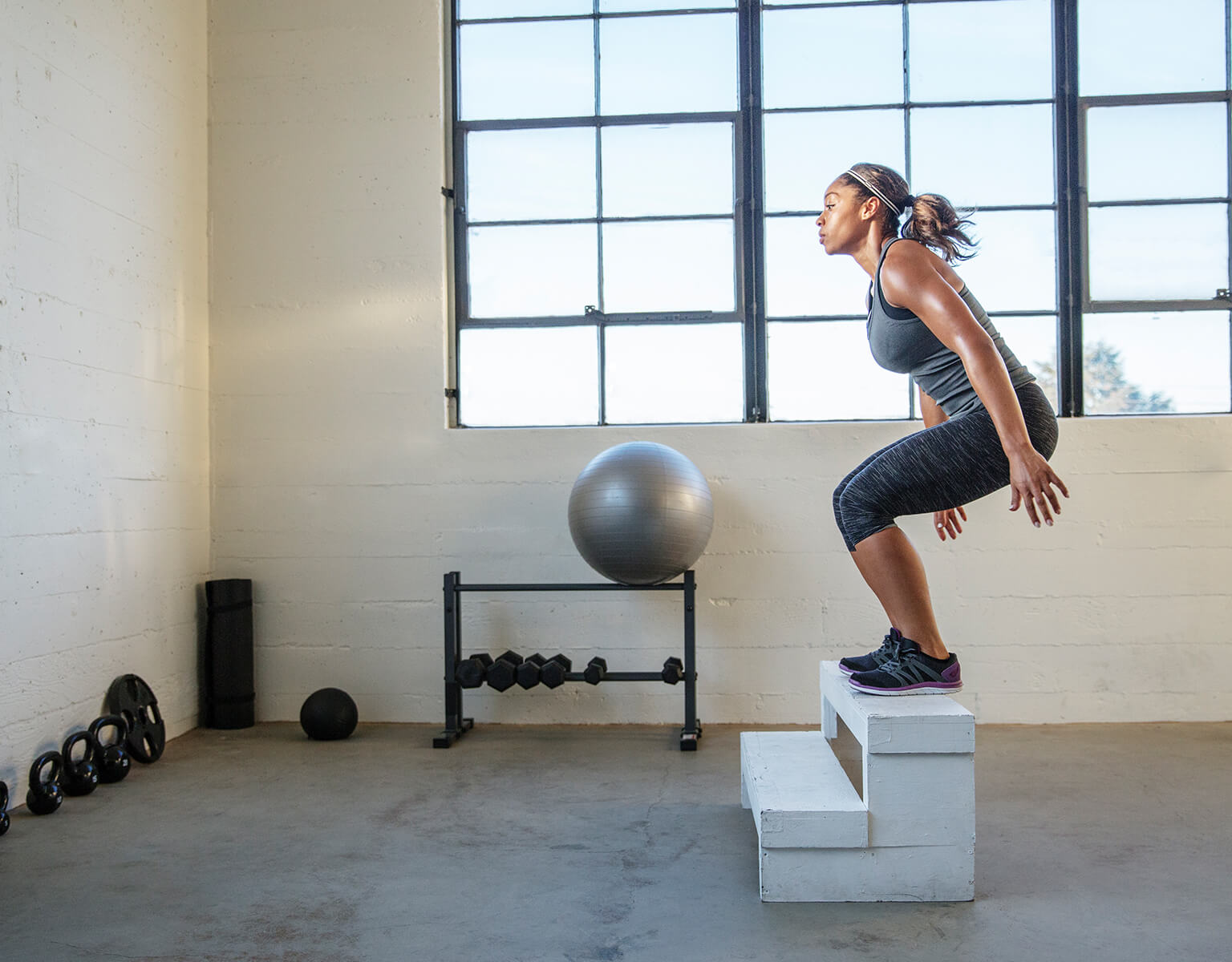Incontinence 101

What Is Incontinence?
If you're experiencing bladder or bowel leaks, you're not alone. 25 million Americans experience light to heavy leakage every year. This is called Incontinence. It's not a disease. But it can be a sign or symptom of something else: an underlying medical condition, a side effect of a medication, or a result of a diet or lifestyle change.Don't Be Afraid to Talk About It
People with leaks often feel embarrassed and uncomfortable discussing such a private matter with their healthcare provider. We get that. But remember, your healthcare provider has heard it all before, and he or she can be a trustworthy and supportive partner. Talking about your leaks is very important because it can be related to underlying medical conditions, plus you can get support and treatment to improve your quality of life.
If you're ready to ask questions, talk to our eNurse™ for support, and learn about next steps for talking to your healthcare provider.
What Causes Bladder and Bowel Leaks?
Even though it's common, there are still a lot of misconceptions about what exactly causes incontinence. And there are many types of bladder leaks to understand.
Stress Incontinence: Light Bladder Leakage
Light bladder leakage, or Stress Incontinence, means you're experiencing just a few droplets or occasional dribbles. This happens when pressure is placed on the bladder through routine actions like sneezing, coughing, laughing, and exercising. Light urinary incontinence can also be due to more stressful physical activity like childbirth and surgery.
Common Causes:
- Strenuous physical activities
- Loss of muscle tone
- Enlarged prostate
- Hormonal changes in women
- Pregnancy and childbirth
- Pelvic surgery and trauma
Urge Incontinence: Moderate to Frequent Bladder Leaks
Urge Incontinence is associated with an Overactive Bladder (OAB). OAB is a common condition that causes spontaneous bladder spasms and contractions, making you feel the frequent, sudden need to urinate. Often these urges are so strong that you can't get to the bathroom in time.
Common Causes:
- Caffeine and carbonated drinks
- Bladder stimulants & irritants such as alcohol
- Sedatives, cold medicines, and high blood pressure medicines
- Hormonal changes in women
- Urinary tract infection and cancer
- Nerve dysfunction associated with trauma, diabetes, multiple sclerosis, spinal cord injury
- Diseases of the nervous system including Alzheimer's and Parkinson's
Mixed Incontinence: Moderate & Frequent Bladder Leakage
If you're experiencing bladder leaks when completing certain routine actions like sneezing or laughing in combination with frequent, strong urges that don't allow you enough time to get to the bathroom, you likely have Mixed Incontinence.
Common Causes:
- Mixed incontinence occurs when symptoms of both stress and urge incontinence are present.
Reflex Incontinence: Heavy Bladder Leakage
If it's hard to tell when you need to use the bathroom, resulting in a frequent loss of bladder control with little to no warning, you may have Reflex Incontinence. This is important to recognize as it can be a symptom of bodily trauma or greater illness.
Common Causes:
- Spinal cord injury
- Stroke
- Brain tumor
Overflow Incontinence: Heavy Bladder Leakage
Does your bladder always feel full? Do you experience a constant dribble and an increased frequency and urgency to go to the bathroom? You might have Overflow Incontinence, which occurs when the urine passageway is blocked.
Common Causes:
- Bladder injury
- Benign Prostatic Hypertrophy (BPH)
- A narrowing of the urethra
- Radical pelvic surgery
- Nerve damage from diabetes
- Medications with side effects
Functional Incontinence: Heavy Bladder Leakage
Functional Incontinence occurs when your urinary system functions properly, but immobility or cognitive impairment prevents you from getting to the bathroom in time.
Common Causes:
- Functional disability and psychological impairment
- Environmental barriers like stairs, clothing, or wheelchair accessibility
- Physical and mental disabilities, like immobility or cognitive impairments
Bowel Incontinence: Heavy Leakage
If you're unable to control your bowel movements, you are experiencing Bowel – or Fecal – Incontinence. This leakage can be present at any age, though it's more common in the elderly population. And no matter how heavy it seems to be, bowel incontinence is considered heavy leakage because it involves more than urine. People with bowel incontinence often feel embarrassed and uncomfortable discussing it with their healthcare provider, but it's important to talk about because it can be related to underlying medical conditions and you'll learn happily that treatment options are available.
Common Causes:
- Muscle damage caused by childbirth
- Nerve damage from childbirth, bowel movement strain, spinal cord injury, or stroke
- Chronic constipation
- Diarrhea
- Scarred or stiffened rectum due to surgery, radiation treatment or bowel disease
- Rectal prolapse
Want to learn more about bowel incontinence? Visit our Bowel Incontinence page for more details on symptoms, causes, and treatment options.
Female Incontinence
Of those who experience incontinence, 75-80% of people with bladder leaks are women. And 9-13 million of these women experience bothersome-to-severe symptoms. Yet women typically wait 6.5 years from first symptoms to talk about it with their healthcare providers. Be brave and bring it up – the sooner you're diagnosed, the sooner you can treat it and find relief.
Pregnancy and Bladder Leaks
Leaking a little is as common in pregnancy as food cravings and morning sickness. This is Stress Incontinence and it's caused by increased pressure on the bladder from the baby. In this state, even a light cough or sneeze can have you running to the bathroom. Childbirth may lead to loss of bladder control due to weakened pelvic floor muscles. The good news is your pelvic floor stability can be improved by doing Kegel exercises, which strengthen the muscles that support the bladder. Check out this handy guide to learn how to do Kegel exercises and take control of your bladder leaks.
The Effects of Menopause
Women may also experience more leaks during and after menopause. As estrogen levels drop, the pelvic muscles controlling the bladder weaken, resulting in frequent restroom visits. Lack of estrogen can also contribute to a deterioration of the urinary tract lining, which affects the flow of urine. Kegel exercises are excellent for menopausal women, as they strengthen the pelvic floor muscles that help keep the bladder closed.
Male Incontinence
Though bladder leakage is often presented as a female issue, it is relatively common among men as well. Out of 25 million Americans affected by bladder and bowel leakage, 20-25% of them are men.
Causes of Male Bladder Leaks
Men can experience incontinence due to an enlargement of the prostate gland, a condition known as benign prostatic hyperplasia. In fact, men with prostate gland problems are at increased risk of urge and overflow incontinence. Male bladder leaks can also be the result of untreated prostate cancer, or a side effect of treatment.
Let's Talk About It, Guys
Two out of three men between the ages of 30 and 70 have never discussed bladder health with their doctor. 66% of men who experience leakage do not use any treatment or product to manage it. Men are also less likely to talk about it with friends and family. But as embarrassing as it might be, bladder health is important to discuss because, whether the cause be a medical condition, an enlarged prostate, or stress, leaks are an inconvenience, not a disease, and they can be easily managed with proper treatment and care.
Incontinence Support, Treatment, and Education
The Good News
Bladder or bowel leaks won't get better on their own and, if ignored, they might even get worse. But the good news is there are a number of relatively easy things you can do to treat or manage the condition and improve your quality of life.
Take the First Step
It's always good to begin with a visit to your healthcare provider for an evaluation and plan of action. As private as the topic may seem, remember that your healthcare provider has heard it all before, and he/she can be a trustworthy and supportive partner in your quest for the right treatment. They're there to help.
You Have Options
Here's a breakdown of some simple treatment options. You can discuss these further with your healthcare provider to decide which feels right to start:
- Behavioral Changes
- Pelvic Exercises
- Changes in Your Diet
- Medication
- Surgery
- Protective Hygiene
Learn More About Incontinence
You can read more about these management options in our Incontinence Treatments guide. And remember to talk with your healthcare provider; together, you can determine which type of incontinence you have and the best treatment options for you. When you take control of incontinence, leaks can't stop you from living life to the fullest.

Try Prevail Free
Get a free sample of our protective hygiene products.





